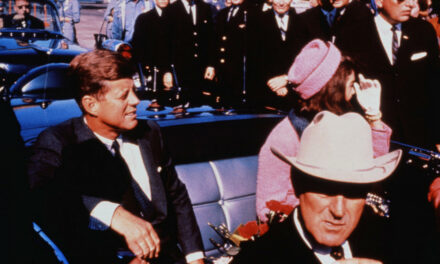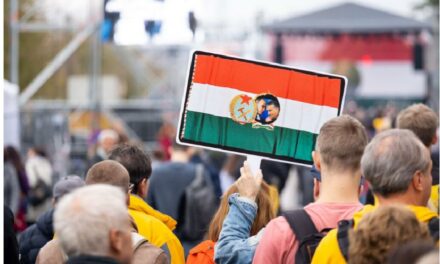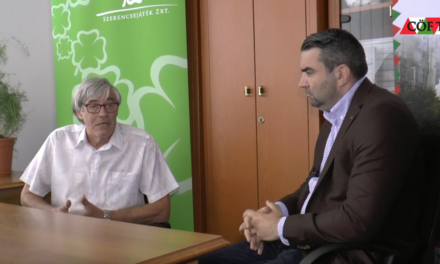In the rush of Christmas, we sometimes tend to forget to stop, sit down and really experience the holiday.
According to some, it is not so important, while others attach special importance to the holiday. However, the Christmas holiday is the ritual that can give us the strength to make our everyday life more complete - if we allow ourselves to celebrate.
The term ritual seems foreign to most people today. When we think of rituals, we may think of the rain dance of African tribes or the chanting of shamans - some mysterious, magical event far removed from our modern world. However, the ritual is much simpler and more ordinary than that. Rituals are repetitive, symbolic actions that we perform before, during or after significant events. This is how the tribal dance before the hunt was a ritual in prehistoric times, Serena Williams bouncing the ball before her first serve was a ritual, and reading stories and swaddling her before falling asleep was also a ritual for young children.
But why do we perform rituals?
The primary purpose of rituals is to create order in chaos; ritual is the means by which we make our unpredictable world graspable and understandable. It creates stable ground under our feet, provides a framework and handholds that sustain us in the midst of life's storms. Research over the past decades has proven many times that even very simple rituals can effectively reduce stress and anxiety, help concentration, and help with grief processing.
Rituals interweave our lives: these can be small or large rituals learned from parents and grandparents; we may have created it for ourselves consciously or accidentally. They can be everyday rituals, or they can be associated with unique, special events - for example, at a wedding or when we move into a new house. Rituals are as old as humanity, and although they change a little in each era, they will stay with us for a long time.
There are rituals that are completely personal, there are family customs, and there are rituals that span entire societies. Our rituals are not formed by chance: every ritual expresses some value, and there are central rituals that symbolize our most important values. Some of the most important rituals for our community and our lives are indelible because, in their symbolic form, they represent one of the most important values of the community in its purest and most perfect form.
Typically, such rituals are the actions associated with certain holidays, and as a meta-ritual, the holiday itself.
The holiday is an inseparable part of our life. The holiday as a ritual is an occasion separate from everyday life, which provides a framework, lends rhythm and order to our lives, and reveals one of our most important values in its full brilliance, which we only partially see in the grayness of everyday life. A few days before Christmas, many people may feel exhausted and frustrated: the Christmas menu, last-minute gift purchases, visiting rarely seen relatives can easily fill all our thoughts, and in the midst of the rush, we can forget to sit down and simply be present for the holiday. However, we deprive ourselves of a great treasure if we do so.
Christianity has been celebrating the birth of Jesus Christ, the Son of God, for two thousand years. We do not know the exact date of Jesus' birth, the date at the end of December dates from the middle of the 3rd century. It is no coincidence that other religions and cultures also celebrated one of their biggest holidays at the end of December, since this is the date when the light comes out again after the darkest day, the days get longer and the nights get shorter. The ritual of the holiday recognized the importance of new beginnings, life and light, and these, in some partial form, also appear in connection with the Christmas holiday. But Christmas represents an even more fundamental value.
"For God so loved the world that he gave his only begotten Son, that whoever believes in him should not perish but have eternal life." (John 3:16). Christmas is the celebration of the event that God became man, Jesus Christ gave himself up and was born on Earth as a defenseless child - in order to convey God's immeasurable love to us. The human world has moved away from the creator God, and man cannot penetrate this distance. Christmas happened because God loves us in such a way that he crossed the distance himself and thus gave us the opportunity to be in contact with him again through Jesus. The greatest imaginable love appears in the Christmas holiday.
We celebrate Christmas because in the ritual of the holiday we recognize the fullness of love. Perhaps it can be said of all people that they value love - and of all people it can be said that they cannot perfectly realize love in their daily lives. We get angry, irritated, prioritize other things (e.g. work), ignore and regret almost every day. Although love is one of our most important values, we come across time and again that we ourselves are not able to live it perfectly. But at Christmas, in the holiness of the holiday, we can see this perfect love, we remind ourselves that we are also important, and we can draw strength so that when the holiday is over, we can represent love a little better.
Let's sit at home for ten minutes - quietly, and just let ourselves arrive in the holiday. More important than the perfect Christmas dinner is who is involved: let's not let the stress of cooking and preparation prevent us from hearing the stories of the grandparents or the sounds of the children's joy. Let's socialize, or talk, or decorate gingerbread with the children; listen to grandma's anecdote and sing his favorite Christmas carol with grandpa. And if the kitchen counter is left with flour, or the torn wrapping paper is scattered on the floor, the world will not end. Let's spend time with long-lost family members, let's make room for minor imperfections and let ourselves enjoy Christmas.
We don't want to make the movie-like, flawless Christmas come true at all costs, but rather be present in the holiday, with love.
We ourselves will never be capable of perfect love – the ritual symbolizes an ideal that cannot be achieved on a human scale. However, we can grasp God's perfect love and make it our own - this opportunity came close to us at Christmas. The ritual of the holiday, which stands out from the grayness of everyday life, reminds us of the greatest act of love, which was announced by the angel who appeared to the shepherds in Bethlehem: "Do not be afraid, for behold, I announce to you great joy, which will be the joy of all the people: a savior has been born to you today, who is the Lord Christ , in the city of David." (Luke 2:10-11)
Petra Krisztina Ratkovics / Corvinák












